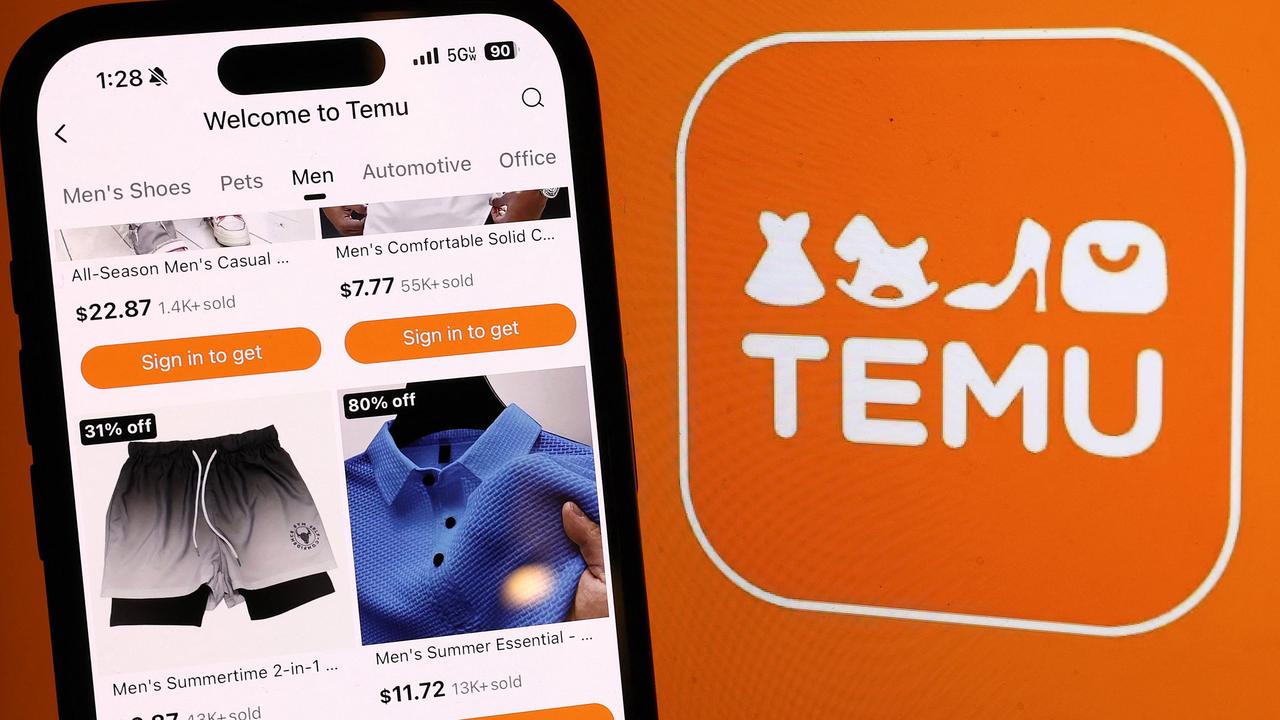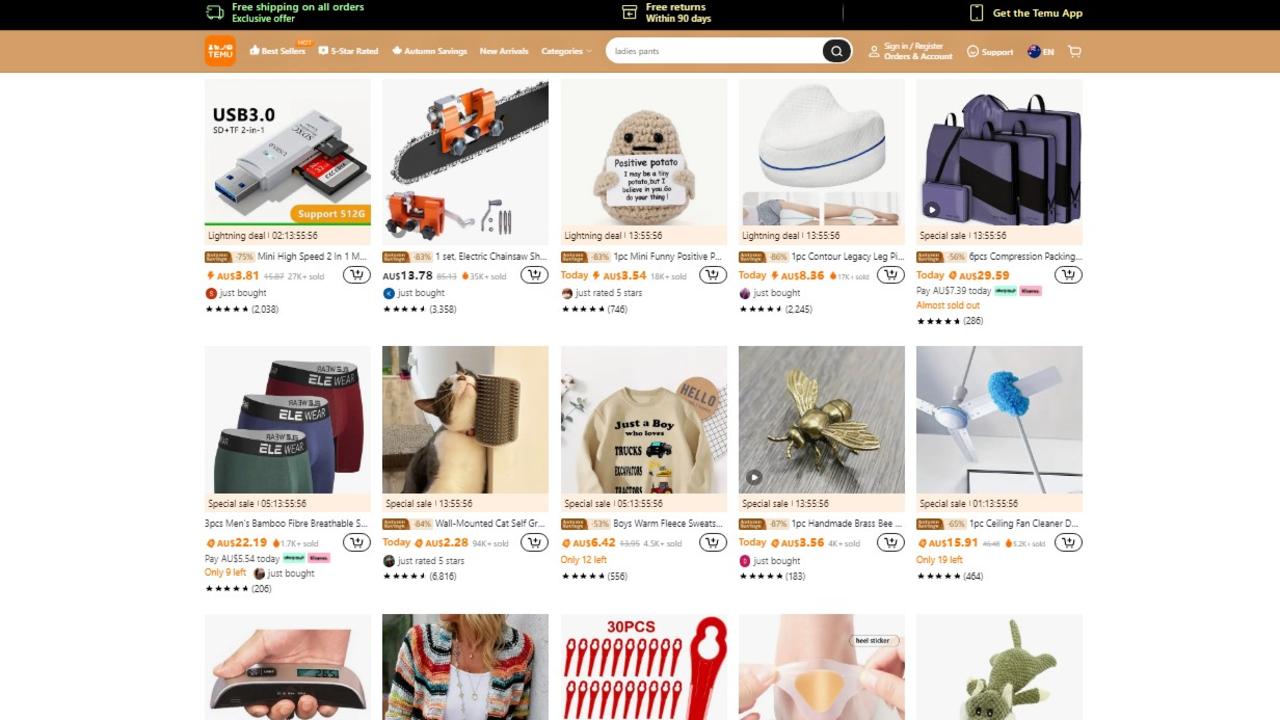Millions of Aussies shopping on Temu warned as popular Chinese retailer under scrutiny
More than one million Aussies are using a popular foreign retailer each month, which is under increased scrutiny over handling of user data.
Online retail giant Temu has quickly gained popularity since launching in Australia a year ago – but along with the hype comes huge concerns for customers’ data.
Temu, which is an online marketplace known for sometimes astonishingly low prices, knock-offs and dupes of more expensive brands, is owned by PDD Holdings.
PDD Holdings started in Shanghai, China and moved its headquarters to Dublin, Ireland last year. It also owns China’s Pinduoduo, a similarly successful domestic shopping platform.
Australian cybersecurity expert Susan McLean said shopping on these types of websites comes with security risks.
“I think every time you use online purchases or online shopping, there is a risk and we’ve seen that with other platforms being hacked over the years and people’s credit card data being stolen,” Ms McLean said, appearing on Sunrise on Monday.
“But we know that anything that is linked back to China may have serious security risks.
“We know that Temu, for example, is collecting a lot of data — it’s not hard to find that out.
“But the problem is people simply download the app and click ‘I accept’ without understanding what they’re actually accepting.”

Ms McLean said another concern was the number of emails customers receive after shopping on Temu, which encourage the purchase of more products. She advises to never click those links.
“You don’t really know if the link is legitimate and you don’t know what’s going to happen if you click on it,” she said. “And we always say if you’re going to purchase a particular product, the best place to purchase that from is the website of the brand itself or a platform like Amazon, something that is a legitimate platform where you’re highly unlikely to be hacked or scammed.”
In a statement provided to the program, Temu said it collects information “for the sole purpose of providing and enhancing its e-commerce service to users”.
“Temu does not ask for system permissions to access things like your photos, contacts, or location. Temu does not share financial data with vendors,” the company said.
“At Temu, we prioritise the protection of privacy and are transparent about our data practices.”
On its website, Temu warns users it “will never send requests for extra payments by SMS or email”.
“If you receive any requests claiming to be from Temu, we strongly suggest you ignore them and do not click on any links they may contain,” the company said.
But Ms McLean is not the first person to raise concerns.

Research company Roy Morgan says 1.26 million Australians are shopping each month on Temu, putting it on track to clock $1.3 billion in annual sales – “thanks to a mix of ultra-cheap prices, free delivery and aggressive marketing and media spend.”
Roy Morgan chief executive Michele Levine said the numbers, released in March, were “extraordinary”.
“When we were first thinking about whether we measured them [Temu and rival Chinese-Singaporean online retailer Shein], I actually thought they’d be too small to pick up,” she told ABC.
“How wrong I was — and I think many of the retailers in the country are shocked at their size.”
When asked by A Current Affair what the catch was with Temu, Ms Levine said: “It might be that they are actually collecting a lot of information about people which becomes its own marketplace.”

Global concerns over use of personal data
Temu is under increased scrutiny in the United States, Europe and elsewhere over its business practices, advertising and handling of user data.
Temu and Shein have been accused in the US of avoiding taxes and undercutting American businesses by abusing a rule that allows the duty-free import of items in shipments that do not exceed $US800 in value.
Temu came under fire this year over a campaign in France and Britain that offered vouchers of up to 100 euros for downloading the app and inviting another person to sign up.
The terms included granting the company the right to use personal data for life.
Temu stopped the offer last month because of “misunderstandings on the extent of client data use”.
It emerged this week that South Korean regulators are investigating Temu on suspicion of false advertising and unfair practices, according to the Yonhap news agency.
South Korea’s Fair Trade Commission (FTC) recently started looking into Temu to determine if it was violating e-commerce and advertising regulations, Yonhap said, citing unnamed government and industry officials.
The FTC is also probing if Temu is in line with consumer protection rules, Yonhap added, citing complaints about product quality and other issues. AFP contacted Temu for comment.
An FTC spokesperson said they could not comment on specific cases, when asked by AFP if the commission was investigating Temu.
The head of South Korea’s Personal Information Protection Commission told reporters this month that the body is looking into how Temu and Alibaba’s AliExpress have been collecting and using people’s data, according to Yonhap.
– with AFP






